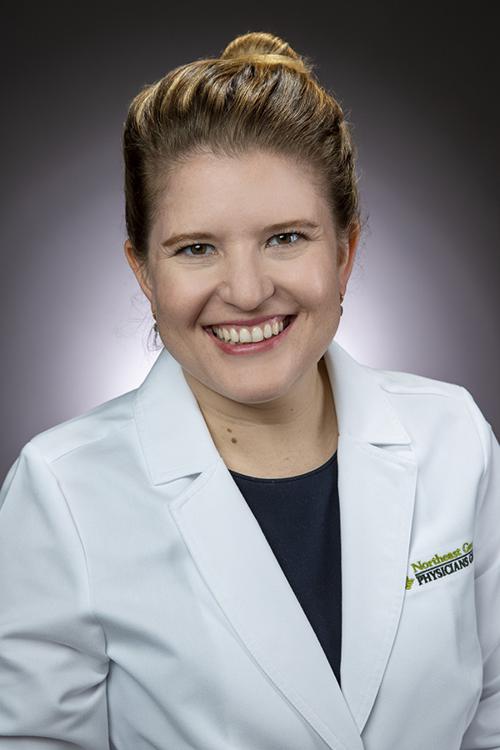October is recognized as Breast Cancer Awareness Month, a time to raise awareness about this common form of cancer that affects 1 out of every 8 women. Do you know your personal risk factors?
The American Cancer Society estimates that more than 300,000 new cases of breast cancer will be diagnosed in 2023 alone, including 9,440 cases here in Georgia. When breast cancer is diagnosed at an early stage (the cancer is limited to the breast), 9 out of 10 women are cancer-free at five years after appropriate treatment.
Knowing your risk can provide you with the information you need to protect your breast health. If you’re at an increased risk of developing breast cancer, you can work with your OB/GYN or another women’s health provider to decide on a strategy for preventing and detecting cancer.
Wondering about your own risk factors? Keep reading to get the details.
Understanding your breast cancer risk factors
Breast cancer risk factors fall into two buckets—factors that you have no control over and factors that you control.
Being a woman and getting older are two uncontrollable risk factors, but there are others, too. Uncontrollable (or unchangeable) risk factors include:
- Having a family history of breast or ovarian cancer, particularly a mother, sister,
or daughter with the disease - Having a personal history of breast cancer or certain noncancerous breast
conditions - Having certain genetic mutations, including BRCA1 and BRCA2
- Having dense breasts
- Starting your menstrual period before age 12 and starting menopause after age
55 - Having a history of radiation therapy to the chest or breasts
While you can’t change the risk factors identified above, you can lower your risk in other ways. Controllable (or changeable) risk factors for breast cancer include:
- Being overweight or obese, particularly after menopause
- Being physically inactive
- Drinking alcohol excessively
- Not having children and/or not breastfeeding
- Using hormone replacement therapy after menopause
Beyond those risk factors, there are other lifestyle habits that may increase your risk of breast cancer, including smoking, eating a diet high in saturated fat, using oral contraceptives, and being exposed to environmental chemicals in the workplace or elsewhere.
A spotlight on breast density
Having dense breasts is a risk factor that’s been identified and highlighted in recent years. There’s no way to know how dense your breasts are by feeling them or looking at them, but the images captured in a mammogram can identify breast density.
Dense breasts are those that contain more glandular and connective tissue than fatty tissue. Why does that matter? Dense breast tissue shows up as white on a mammogram, appearing similarly to cancer cells or tumors. This can make it more challenging to spot small tumors in the breasts.
How do dense breasts increase your risk? Researchers aren’t sure, but they know there is definitely a link between having dense breasts and a higher risk of breast cancer.
Because of that, the FDA now requires that mammography reports provided to patients indicate whether the patient has dense breasts or not.
The signs & symptoms of breast cancer
Many cases of breast cancer don’t cause noticeable symptoms, which is why it’s important to keep up with routine checkups and screening tests. In some cases, though, there may be red flags that breast cancer is present.
Keep an eye on your breasts for these signs:
- A new lump in the breast or underarm
- Breast pain
- Changes in the size or shape of the breast (without a discernible reason such as
pregnancy or weight gain) - Irritation or dimpling of breast skin
- Inversion (pulling in) of the nipple
- Nipple pain or discharge
- Redness or flaky skin on the nipple or breast
- Thickening or swelling in part of the breast
If you experience any of these symptoms, don’t be alarmed—just have your symptoms checked out. The symptoms outlined above are also frequently signs of noncancerous breast conditions.
Making sense of screening guidelines
If you’ve watched the news in recent years, you’ve probably heard many different, often conflicting guidelines for when you should have your first mammogram and how often mammograms are needed.
So, what’s the answer? The American College of Radiology (ACR) guidelines are a good place to begin a discussion with your doctor about what works for you.
The ACR has long recommended that all women have a screening mammogram by age 40 and continue to have a mammogram annually after that. In May 2023, the ACR added to that recommendation—calling for all women to have a risk assessment by age 25 to determine if earlier screening is needed.
Women at a higher risk of developing breast cancer, including those with genetic mutations, a personal history of breast cancer, or dense breasts, may also benefit from additional screenings, such as breast ultrasound or MRI, along with mammograms.
It’s important to talk with a medical provider about your risk factors and whether you could benefit from earlier, more frequent, or extra screening.
What else you can do to protect your health
Because there are risk factors you can’t control, there’s no foolproof way of preventing breast cancer. But there are steps you can take to improve your health and lower your risk.
Living a healthy lifestyle is a good place to begin.
- Fuel your body with healthy foods, including fresh fruits and vegetables, along with lean proteins, like chicken or fish.
- Aim to get at least 150 minutes of moderate physical activity, such as walking briskly or jogging, each week. Talk with your medical provider about what a healthy weight looks like for you.
- If you smoke, you can also talk with your provider about cessation methods that might work to help you quit.
While breast self-exams are no longer formally recommended as part of screening guidelines, it’s still a good idea to be familiar with the look and feel of your breasts. Keep an eye out for any changes or things that simply don’t feel normal to you and have them checked out.
Life can be busy, but it’s worth pausing every once in a while to check in with your body.
Your health will thank you
Learn more
Visit www.nghs.com/cancer-services for more information about NGMC cancer services. To learn more about routine cancer screenings, and to take our cancer screening quiz, visit www.nghs.com/cancer-screening.



